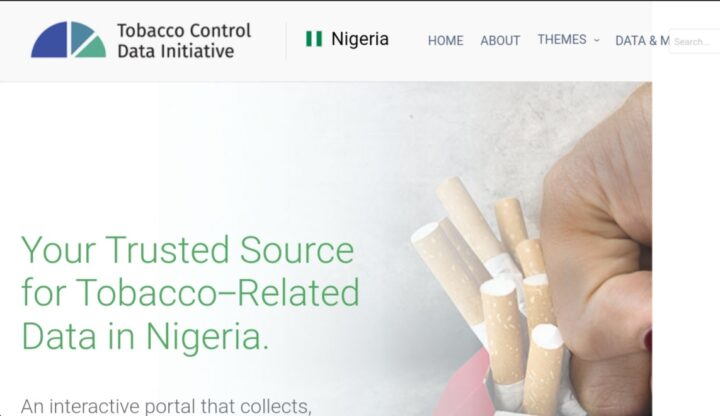The federal government, in collaboration with Development Gateway (DG), a data for development non-profit organisation, has launched the tobacco control data initiative (TCDI) website.
The website is to create a platform for the general public to get data for the advancement of tobacco control legislation in Nigeria.
In a statement on Wednesday, the organisation said the website is in response to the increased use of tobacco products in Nigeria and the inherent dangers for the general public, especially young people.
The organisation added that the website will address the data gap in tobacco control that would enable legislators and decision-makers to use correct data to inform public health policies.
Advertisement
“At least 16,100 Nigerians die annually because of illnesses linked to tobacco use. 3.2 million Nigerians between the ages of 15 and 49 used tobacco in 2018; and about 200,000 tobacco users are women (NDHS, 2018),” the statement reads.
“While tobacco consumption globally is decreasing, by 2030, the number of smokers in Africa is anticipated to rise by nearly 40% from 2010 levels. This is the largest expected increase in the world; particularly alarming when juxtaposed with the fact that Nigeria is a tobacco production hub and was the third largest exporter of cigarettes in 2018 (Africa’s Tobacco Epidemic, Tobacco Tactics, 2020).
“Certain legislative policies are proven to reduce the use of tobacco products. Through their research, the TCDI team identified common themes in the data landscape.
Advertisement
“These relate to concerns about data accuracy, comparability, timeliness, and accessibility. As a result, the TCDI team understands the data needs and gaps, has identified existing data, and developed the TCDI Nigeria website that enables decision-makers to use essential data to inform tobacco control policy more effectively.
“ Together, partners co-designed a publicly available website — https://nigeria.tobaccocontroldata.org — that aims to address key decision-making needs.
“The website equips stakeholders in government, civil society, academia, and the general public with reliable and up-to-date evidence to promote tobacco control and public health.”
Advertisement
Add a comment






